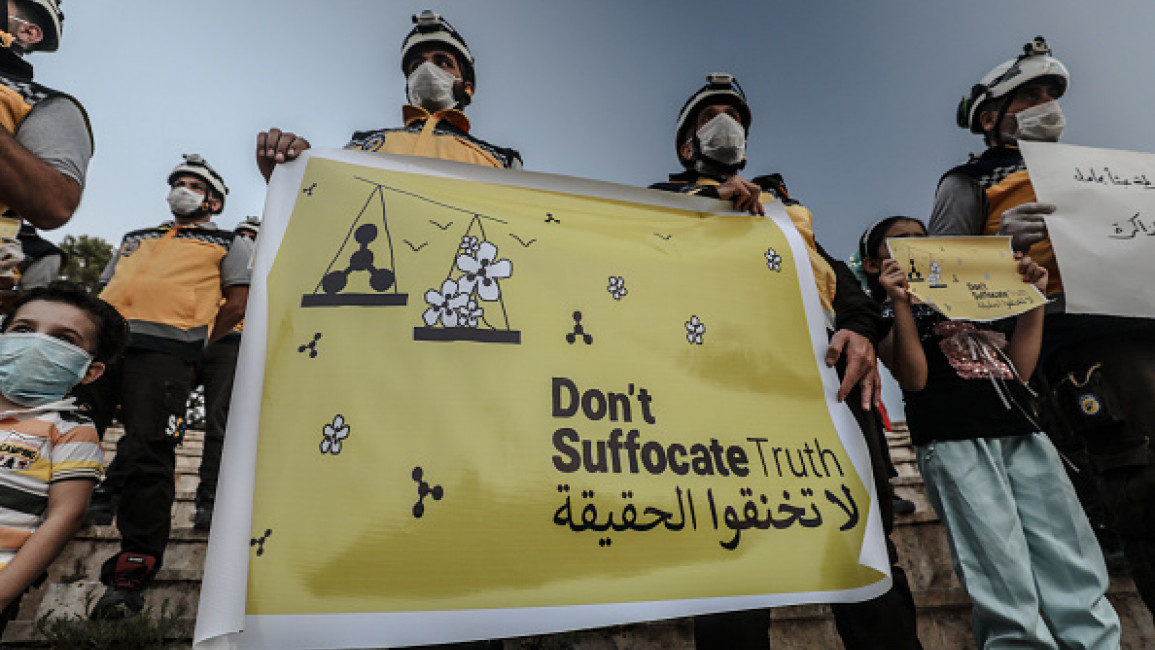Chemical weapons watchdog blames Islamic State group for 2015 Syria attack
The Organisation for the Prohibition of Chemical Weapons (OPCW) on Thursday identified Islamic State (IS) group militants as the likely perpetrator of a chemical weapons attack in Marea, Syria, on September 1, 2015.
There were "reasonable grounds to believe that on 1 September 2015, during sustained attacks aimed at capturing the town of Marea, units of IS deployed sulfur mustard," the organisation said.
The OPCW's Investigation and Identification Team found that 11 individuals who had come into contact with a "black, vicious substance" found in projectiles at the site of the attack, had experienced symptoms consistent with exposure to sulfur mustard.
The team had established that the chemical payload was deployed by artillery from areas under IS control, it said.
"No other entity possessed the means, motives, and capabilities to deploy sulfur mustard as part of an attack in Marea on 1 September, 2015," it added.
Earlier OPCW investigations have found that the Syrian regime used the nerve agent Sarin in an April 2017 attack, dropped gas cylinders onto residential buildings in the rebel-held Syrian city of Douma in 2018, and has repeatedly used chlorine as a weapon.
Damascus denies using chemical weapons and has blamed Islamic State group militants for mustard gas use.
The Investigation and Identification Team was established by member states at the Hague-based OPCW in November 2018 to identify perpetrators of chemical attacks in Syria after Russia vetoed the joint United Nations-OPCW mission.



